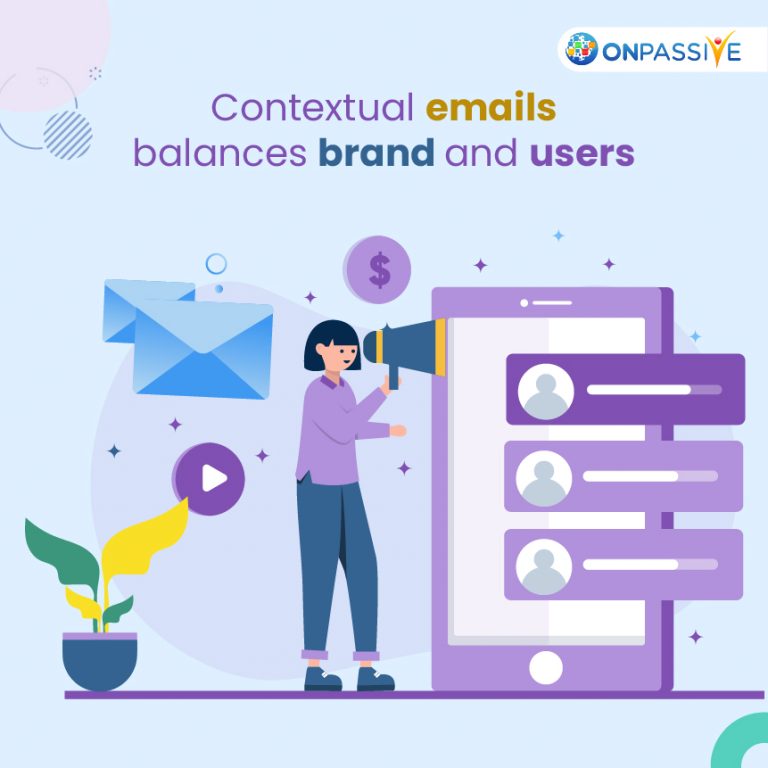
It’s no secret that most marketers are thinking about artificial intelligence. It is being used in a variety of channels, including email marketing, as it grows in popularity. However, it is difficult to forecast how AI and machine learning will affect email marketing in general.
With AI Marketers trying to personalize emails in order to make them more relevant. This notion is recognizable to experienced marketers who have used marketing automation systems to construct customer journeys or use segmentation and/or personas. To prove, let’s understand the use of AI-based Email marketing.
AI-based Email marketing
Email marketing is a bit of a dinosaur when it comes to digital marketing tactics. An email has been around since the 1970s, and it has been used for business reasons for nearly as long.
Email marketing is still one of the most common strategies, even if it isn’t as thrilling as some of the newer digital marketing possibilities. The explanation is straightforward: it works. Even though technology has advanced, we still read email on a daily basis. Email marketing continues to provide a strong return on investment (ROI) across the board.
Thus, Artificial intelligence has substantially increased the number of conversions and personalization that can be achieved through AI-based Email marketing.
Transforming Email Marketing with AI & ML
Creating one-to-one email campaigns, especially when sending them in mass, needs a significant amount of time and thinking. AI technology provides us with a plethora of options, from developing meaningful subject lines to improving email performance. Let’s find out ways how AI & ML is transforming Email Marketing:
Natural language processing (NLP)
The world has changed. The question of whether AI can process information as well as humans has been answered. People have finally begun to recognize the critical role of humans in the proper operation of AI systems. AI-powered subject lines for AI-based Email marketing are the most recent feature to make waves.
NLP has made it possible for computers to understand and analyse enormous amounts of unstructured data provided by humans and transform it into a structured way. Natural language generation (NLG), on the other hand, evaluates structured data from NLP in order to create its own data.
The auto-generated subject lines will be linked with your brand’s identity and voice since the NLP process captures the tone, mood, and subject of your brand’s email content. In addition, ML uses performance-prediction data to help you improve subject lines, allowing you to write subject lines with the optimal number of words for inbox displays and enhancing open rates.
Email Content
Increase open rates while delivering emails that resonate better with readers is one of the primary goals of email marketers. Contextual emails establish a balance between your company’s message and what your subscribers want to hear.
Dynamic content strategies will enable you to target subscribers at a level that is relevant to them based on demographics and psychographics, as well as behavioural data such as interests, activities, prior preferences, geo-location, engaged times, and so on.
If you are looking for an automated email marketing tool, OMAIL by ONPASSIVE is an idle product for you. With OMAIL you can switch to a simple and painless method of communication at work.
Automated Responses
The same NLP technique that helps you generate subject lines may also help you decipher and track the feelings of your email readers. ML has totally automated the management of recipients’ responses. Every factor is considered, including polarity, subject, and the information provided by the opinion bearer.
Subjectivity and objectivity can coexist in recipient reactions. Subjective terms describe the receivers’ emotions and sentiments, whereas objective terms typically express something objective.
Optimization
In email marketing, performance testing of emails is a standard technique. Testing procedures are getting increasingly sophisticated, exact, and intelligent as technology advances. While A/B testing is the most frequent technique — it divides an email into two copies, conducts an experiment to see which of the two works best, and then sends the winner version to the bulk of the non-experimental audience — there are now additional options.
Multivariate testing develops numerous copies of an email to improve performance, whereas multi-attribute testing tests a variety of email properties at the same time, such as subject lines, content, design, sender address, and so on, to determine which one is more effective in terms of increasing open rates, click rates or both.
Conclusion
Sending humanized, relevant emails that promote higher sales rely heavily on machine learning and AI. These technologies may help you do clever and intelligent marketing that keeps up with ever-changing times, in addition to simplifying the email marketing process. Thus, for switching to an automated email marketing tool, contact us.



Bikash Das
3 years ago